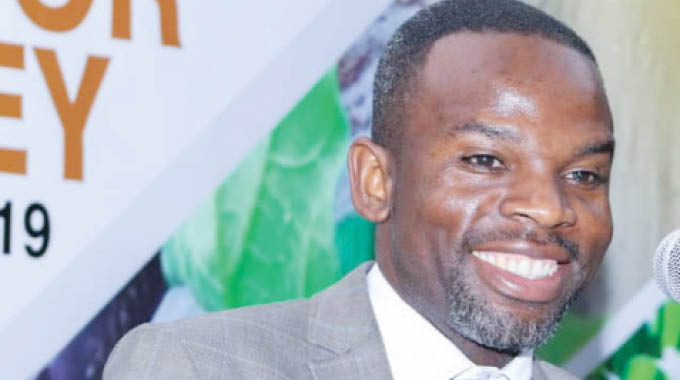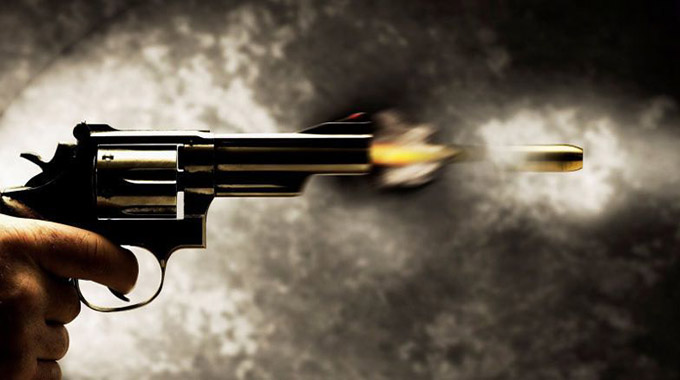Book looks at Peter Ndlovu’s rise at Coventry City

SKY Blues legend Peter Ndlovu features in an engaging new book delving into the unexpected twists and turns during the trailblazing careers of Britain’s first African footballers.
The Zimbabwean winger, who played for Coventry City between 1992 and 1997, was the first player from the continent to feature in the new Premier League, paving the way for other great names to follow.
Springing off the bench to make his debut in Coventry’s 2-0 win over Tottenham Spurs at White Hart Lane, the “instant hero” would go on to score 39 goals during 176 top-flight appearances.
Author Ed Aarons has unearthed some of the bizarre circumstances behind the flying winger’s time at Highfield Road, including a drinking bet among a group of friends in Zimbabwe that helped the “Bulawayo Bullet” improve his fortunes at the club.
Speaking to Aarons, Winston Makamure (Ndlovu’s former agent) recalled how the wager that he could have a picture taken with Ndlovu, who they regarded as one of the best footballing talents in England, changed his life forever.
Winston, who was attending university in Hertfordshire, slept rough in a hire car at a service station after turning up at Coventry City’s training ground only to be told by a laundry lady that the team would not be going through its paces that day.
Undeterred, he returned to land the picture with the gracious star, nicknamed ‘Nuddy’ by fans, and his team-mates after saying he was from the same village as the winger, even though they spoke different African languages.
Forced to switch to English, Ndlovu told teammates they didn’t want to be rude before bringing his devoted fan some sandwiches.
Inexplicably, Ndlovu then told manager Bobby Gould that Makamure was his agent, before giving him tickets for a game against Ipswich at Highfield Road that weekend.
The fans’ favourite was voted man of the match, with Makamure watching from the stands after giving his seat in the directors’ box to his cab driver because he wasn’t wearing a suit and tie.
However, he ended up taking on the job, negotiating an improved contract with the Sky Blues and continuing in the role until his countryman retired in 2011.
While Ndlovu is celebrated for his time in the top flight, Steve ‘Kalamazoo’ Mokone’s equally ground-breaking journey to Coventry contained highs and lows before petering out.
Mokone became the first black South African footballer to ply his trade professionally in England after initially being spotted by then Wolves manager Stan Cullis playing in Johannesburg in 1951.
Then a teenage striking sensation, Mokone had been playing at a time of restrictions on ‘inter-racial’ sport in his home nation and rarely faced white players until his move to England.
The prodigious talent, who acquired his nickname due to his love of the song ‘I’ve Got a Gal in Kalamazoo’ from the Glenn Miller film Orchestra Wives, eventually moved to the Sky Blues, who were playing in the Third Division at the time.
In 1956, his welcome to England included figuring out what the box set was in his room at the Strand Palace Hotel in Piccadilly Circus, as televisions were yet to be introduced to South Africa.
Hitting the town, he was propositioned by a ‘lady of the night’ with what he thought was an “erotic adventure” turning into a nightmare as the woman and a friend “made demands on me” before fighting each other.
With no money to pay for the room where the trio had ended up in the early hours, he was forced to make a run for it before the landlady called the police.
Arriving in Coventry, Mokone was greeted by chairman Erle Shanks.
The next day’s paper had a picture of the new arrival wearing an oversized duffel coat and smiling nervously as he shook hands with the boardroom chief.
Asked about his first impressions of England, he reflected that “the people are very friendly but not the weather”.
The club arranged for the trialist to live with a devout Christian family on the Allesley Old Road who offered support to exiled politicians from Africa.
Accustomed to racial division, Mokone admitted feeling uncomfortable using the same cups and toilet as a white family, despite later acknowledging that it was a problem of his own making due to his “cultural baggage”.
He made his first-team debut in a 3-1 defeat against Millwall watched by a crowd of 20 261, the numbers swollen by people coming to see the highly-anticipated striker.
Despite the defeat, his skill on the right-wing, including an impressive assist, made a great impression on those watching his Football League debut at Highfield Road.
Mokone signed on as a professional, seeing himself as a “football ambassador for my people”, with the picture of the grinning footballer published in the Coventry Telegraph on October 16, 1956.
However, he would later say he was shunned by his teammates, who exhibited “paternalistic racism” and kept their distance in the canteen and the baths after games.
Earning just £5 a week, Mokone became isolated, with goalkeeper Reg Matthews being the only player to invite him into his home during his nine months with the club.
A series of equally skillful displays and his first league goal followed until injury and the English winter took its toll on his health and he slid out of the first team picture.
Even as Mokone recovered, and the Sky Blues struggled, he found there was no way back.
He played his last game for the club in the reserves on April 22, 1957.
The fringe player moved to Heracles, a club then marooned in the Tweede Divisie B , the third tier of Dutch football.
The Guardian journalist’s book, Made in Africa, The History of African Players in English Football, is sprinkled with insights, punditry and sparkling quotes from over the years.
The story is brought into the present as Aarons takes in the achievements of the present crop of African stars, including the remarkable story of Sadio Mané’s ascent to the pinnacle of English football with Jurgen Klopp’s title-winning Liverpool side. — Coventry Telegraph











Comments